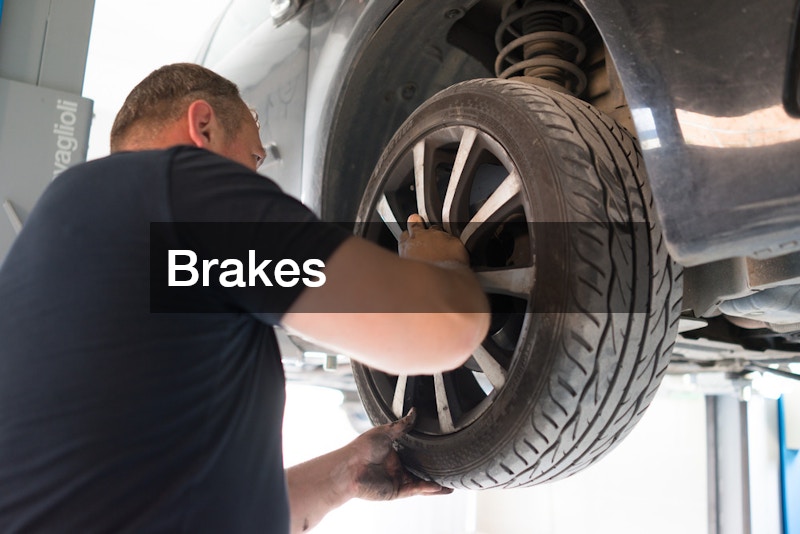Cars are an essential part of modern life, providing convenience and mobility. However, the complexities of vehicles introduce a myriad of potential problems in cars that can significantly disrupt our daily routines. From engine issues to exterior damages, understanding how to tackle these problems in cars is crucial for every vehicle owner, ensuring safety and functionality on the road.
In this comprehensive guide, we will delve into the various aspects of vehicle maintenance and repair, covering weather damage, key functionalities, engine and transmission concerns, braking systems, detailing, wheel upkeep, heavy damages, regular service, and factors to consider when deciding to sell your car. Whether you’ve encountered hail damage or malfunctioning electronic keys, each section aims to provide practical insights on how to address the corresponding problems in cars effectively.
By equipping yourself with knowledge on these issues, you can better understand your vehicle’s needs, make informed decisions, and potentially save a lot of money in repairs and service costs. Keep reading to explore everything from minor dents to major collision repairs and how each plays a role in maintaining your car’s longevity and performance.
Weather Damage

One of the most common problems in cars arises from severe weather conditions, such as hailstorms. Hail can cause significant damage to a vehicle’s body, often resulting in dents that not only spoil the aesthetics but can also lead to rust and corrosion if left untreated. Hail damage repair services are crucial in restoring your vehicle’s exterior and preventing further damage.
After a hailstorm, many vehicle owners notice the tell-tale signs of damage on their cars. Seeking professional hail damage repair can help mitigate these problems in cars, ensuring that your vehicle remains roadworthy and visually appealing. Specialized repair techniques, such as paintless dent repair, can be highly effective in restoring your car without the need for extensive repaint.
Aside from dents, weather conditions can also affect other parts, prompting regular inspections. For example, body panels may misalign, and seals can deteriorate, leading to water leaks. Addressing these issues promptly is essential in avoiding compounded filter problems in cars, which can incur additional repair costs down the line.
Keys and FOBs
Remote start mechanisms have evolved to become a desirable feature in modern vehicles, offering convenience, especially in extreme weather. However, as with any technology, problems in cars can arise when keys or fobs malfunction, leaving owners unable to start their vehicles. Whether it’s a dead battery or an electronic failure, understanding how to troubleshoot these key-related issues is essential.
One common problem is the inability to properly sync remote keys to the vehicle. In many cases, a simple battery replacement can resolve the issue, while at other times, reprogramming may be necessary. Knowing when and how to seek local auto repair services for key-related problems can save you from getting stranded and ensure your vehicle is always ready to go.
Additionally, always be aware of your vehicle’s key types. Smart keys, traditional keys, and remote fobs all have distinct functionalities, and understanding these can help mitigate problems in cars. Having a backup key is also a smart practice that can prevent emergencies, especially for vehicles equipped with remote start features.
Engines
The engine is often regarded as the heart of the car, and any problems in cars that originate here can be particularly problematic. Regular maintenance is vital in preventing issues such as oil leaks, overheating, or stalling. Local auto repair shops play a crucial role in helping car owners maintain their engines, offering services ranging from oil changes to comprehensive diagnostics.
One of the most frequent preventative measures is the engine oil change. Funky noises and diminished performance can signal issues that, if ignored, could lead to severe engine problems in cars. Mechanics often recommend following your vehicle’s manufacturer guidelines regarding oil type and change intervals for optimal performance.
Additionally, engine problems can give rise to other faults in the car, which makes regular diagnostics even more important. Identifying issues such as a worn timing belt can be a cost-saving measure that ultimately avoids catastrophic engine failure. When problems arise, addressing them promptly at a reputable local auto repair facility will enhance your car’s longevity.
Transmissions

The transmission system of your vehicle is crucial for its optimal operation. Problems in cars often arise when there are issues in the transmission system, leading to poor shifting performance or unusual noises. Car transmission flushes are vital service procedures that help maintain the health of your transmission, ensuring that it functions smoothly.
Regular transmission fluid changes can prevent many issues, such as slipping or erratic shifting, which are indicators of a failing transmission. If left unchecked, these problems can escalate quickly, leading to extensive repairs or even complete transmission replacement. Visiting a local auto repair shop for periodic checks can help notice these early warning signs.
Furthermore, understanding the signs of transmission problems, such as a burning smell or warning lights on the dashboard, can prove advantageous. It is essential to take your car to a service center at the first signs of trouble, where experienced technicians can provide a car transmission flush and any necessary repairs to keep your vehicle in good working order.
Dents and Scratches
Dents and scratches are unfortunate realities of car ownership that arise from everyday incidents, from minor collisions to scratches. An automotive detailer can address these problems in cars effectively, ensuring that your vehicle maintains its visual appeal. Regular detailing not only repairs minor damages but also protects paintwork and enhances the car’s resale value.
In addition, small imperfections can sometimes lead to bigger issues, such as rust formation if left untreated. Seeking the help of an automotive detailer can prevent these problems from escalating. By investing in regular detailing services, owners can maintain their cars’ aesthetics while guarding against environmental effects.
Understanding the importance of wash and wax can also help maintain the condition of your vehicle, as it aids in preventing surface scratches and paint fading. Regular care, including buffing and polishing, can keep your car looking new for years. Ultimately, acting quickly to address dents and scratches through professional services can significantly reduce repair costs over time.
Wheels and Tires
Wheels and tires are critical components that ensure the safety and performance of your vehicle. Problems in cars often originate from neglected tires, which can lead to issues such as blowouts, poor handling, and reduced fuel efficiency. Visiting a reliable tire shop regularly is essential to maintain optimal tire pressure and tread depth.
When your tires are in poor condition, it may compromise your entire driving experience. Routine tire rotations and balances can help distribute wear evenly across your tires, which is crucial for safe driving. Additionally, being proactive about replacing worn-out or damaged tires significantly reduces the chances of encountering serious problems in cars.
Furthermore, maintaining your wheel alignment is vital for the longevity of your tires and overall vehicle health. Misalignment can lead to uneven wear and reduced control on the road. Regular inspections at a tire shop can help ensure your wheels remain aligned, enhancing both performance and safety while driving.
Brakes

The braking system is one of the most critical safety features of your vehicle. Given the significant role brakes play in car operation, problems in cars that develop in this area should be addressed immediately. Brake repair is essential not only for the vehicle’s performance but also for the safety of everyone on the road.
Symptoms of brake problems can manifest in various ways, including unusual noises, a spongy brake pedal, or vibrations during braking. Regularly scheduled inspections and timely brake repair can prevent minor issues from becoming serious safety hazards. Ensuring that your vehicle’s brake pads and rotors are in good condition is a protective measure for drivers and passengers alike.
Moreover, brake fluid should be regularly checked and replaced to maintain optimal brake performance. Contaminated or low brake fluid can lead to brake failure, posing severe implications while driving. Staying diligent about your vehicle’s brake health will significantly reduce the likelihood of encountering dangerous problems in cars connected to the braking system.
Heavy Damages
Heavy damages, often resulting from collisions, can lead to extensive repairs that might require the expertise of specialized technicians. More than just superficial repairs, collision repair addresses the structural integrity and safety of the vehicle. Overlooking even minor damages can compromise the functionality of other parts, escalating repair costs significantly later.
When involved in a collision, documenting the damage and seeking professional collision repair services promptly can streamline the process. Trained repair teams can assess the extent of damages and execute repairs that restore your vehicle to its pre-accident state. Being proactive about collision repairs reinforces the safety and value of your car.
Additionally, understanding insurance coverage can help ease the financial burden of substantial repairs. Many insurance policies cover collision damage, lessening the stress of repair expenses. By communicating with your repair service, you can navigate your insurance claim effectively, ensuring your vehicle is restored without excessive out-of-pocket costs.
Vehicle Maintenance
Vehicle maintenance plays a fundamental role in prolonging the lifespan and enhancing the performance of your car. By adhering to a strict auto service regimen, car owners can alleviate many common problems in cars before they escalate. Regular inspections, fluid checks, and timely repairs are crucial in maintaining a healthy vehicle.
Routine maintenance also includes monitoring the functionality of various systems, such as the electrical and exhaust. A vigilant approach helps pinpoint early signs of wear and tear, reducing the likelihood of expensive repairs. Whether it’s changing filters or synthesizing fluids, establishing a solid maintenance schedule can shield cars from significant breakdowns later.
Moreover, maintaining your vehicle not only enhances performance but also elevates safety standards for driving. Neglecting regular check-ups can lead to exacerbated problems, severely compromising reliability. Engaging with local auto repair services for regular auto service appointments is a practical investment for any car owner seeking longevity and safety on the road.
When to Sell Your Car

Every vehicle reaches its limit, requiring owners to recognize when to sell their car to avoid excessive repair costs. Problems in cars often lead to difficult decisions about whether to invest in repairs or to seek a buyer. Evaluating repair history, current condition, and ongoing issues can help determine the most financially sound course of action.
Additionally, factors such as market trends and the vehicle’s resale value also influence the decision-making process. Some owners prefer to sell their vehicles before major repairs are needed, ensuring that they can capitalize on the car’s current value. Understanding when to sell my car ultimately depends on balancing repair costs against potential sale income.
Lastly, don’t forget to consider how much you rely on your vehicle for daily activities. The inconvenience of being without a functioning vehicle can lead to poor decisions in timing. Keeping abreast of your vehicle’s health and the market can help make informed choices that align both with your needs and financial situation.
In conclusion, navigating the wide array of problems in cars requires vigilance and knowledge. From understanding weather-related damages and managing technological advancements in key systems to maintaining essential components like brakes and tires, recognition and resolution are crucial. Regular vehicle maintenance, timely repairs, and informed choices about selling your car can significantly contribute to the longevity and health of your vehicle.
This comprehensive guide has covered essential topics, including hail damage repair, the importance of remote start functions, the role of local auto repair shops, the necessity of helpful services like car transmission flushes, and much more. By utilizing this information, car owners can better address potential problems in their cars and take proactive steps to avoid costly repairs.
Remember that cars are long-term investments, and treating them with care and attention can pay off immensely over time. Knowledge is power when it comes to automotive care, so stay informed and vigilant about your vehicle’s needs through regular assessments, expert repairs, and high-quality service. Make informed decisions that benefit both your car and your peace of mind and how to plan ahead.